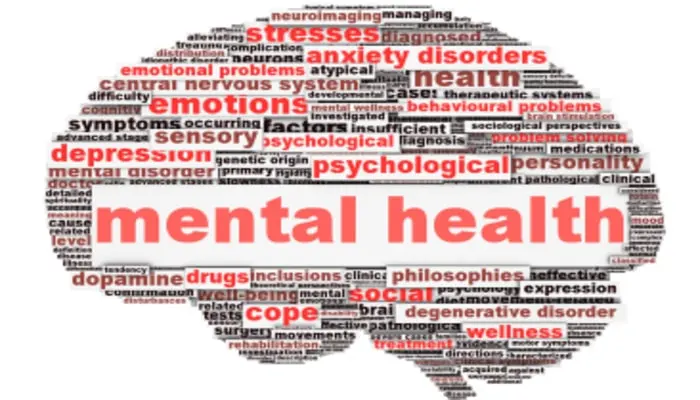The Importance of Mental Health: Understanding Its Role in Overall Well-Being
Mental health is a cornerstone of our overall well-being, yet it often receives less attention than physical health. Mental health affects how we think, feel, and act, and it plays a crucial role in our ability to manage stress, relate to others, and make choices. This article delves into the significance of mental health, explores the factors affecting it, discusses the consequences of neglecting it, and provides strategies for promoting mental wellness.
What is Mental Health?
Mental health encompasses our emotional, psychological, and social well-being. It influences how we handle stress, interact with others, and approach life’s challenges. Good mental health is more than just the absence of mental illness; it means thriving in one’s daily life and fostering positive relationships with oneself and others.
Aspects of Mental Health
- Emotional Well-Being: This refers to our ability to manage emotions and respond to challenges effectively.
- Coping Skills: How we cope with stress and adversity significantly impacts our mental state.
- Relationships: The quality of our interpersonal connections can enhance or hinder our mental health.
- Self-Perception: How we view ourselves and our self-worth plays a crucial role in mental well-being.
- Physical Health: There is a strong link between mental and physical health, where one directly influences the other.
Factors Impacting Mental Health
Various biological, psychological, and environmental factors influence mental health. Understanding these factors can help us grasp the complexities of mental health issues.
1. Biological Factors
- Genetics: A family history of mental illness can increase one’s susceptibility to mental health conditions.
- Neurotransmitter Imbalances: Chemical imbalances in the brain, such as those involving serotonin or dopamine, can affect mood and behavior.
- Physical Health Conditions: Chronic health conditions, neurological disorders, or injuries can have profound effects on mental well-being.
2. Environmental Factors
- Life Experiences: Traumatic events, such as abuse or the loss of a loved one, can have lasting impacts on mental health.
- Stress: Ongoing stressors, such as financial problems, work-related pressures, or relationship issues, can exacerbate mental health struggles.
- Support Systems: A strong social support network can act as a protective factor, whereas social isolation can worsen mental health.
3. Psychological Factors
- Personality Traits: Individual characteristics, such as resilience and optimism, can influence how one copes with challenges.
- Cognition and Thinking Patterns: Negative thinking patterns, cognitive distortions, and perceptions of oneself and the world can contribute to mental health issues.
Consequences of Neglecting Mental Health
Ignoring mental health can have serious repercussions, not just for the individual but also for society at large. Some notable consequences include:
1. Impaired Quality of Life
Mental health issues can lead to a diminished quality of life. Those struggling with mental health conditions may find it challenging to engage in daily activities and experience a general sense of dissatisfaction.
2. Deterioration of Relationships
Poor mental health can strain relationships, leading to misunderstandings, conflicts, and a lack of communication among friends, family, and peers. This isolation can further exacerbate mental health problems.
3. Performance Issues at Work or School
Mental health directly affects productivity and focus. Individuals facing mental health challenges may struggle to perform at their best at work or in academia.
4. Physical Health Problems
There is a strong connection between mental and physical health. Ignoring mental health can lead to various physical problems, including heart disease, obesity, diabetes, and sleep disorders.
5. Increased Risk of Risky Behaviors
People facing mental health challenges may engage in self-destructive behaviors, such as substance abuse, self-harm, or even suicidal tendencies. The World Health Organization (WHO) highlights the need for comprehensive approaches to address mental health issues, emphasizing prevention and care.
Promoting Mental Health
Addressing and promoting mental health is crucial for individual and communal well-being. Here are some effective strategies:
1. Education and Awareness
Raising awareness about mental health can help remove stigma and encourage individuals to seek help. Initiatives that educate the public about mental health issues can create more supportive environments.
- Mental Health America (Mental Health America) offers a wealth of resources and information about mental health awareness programs.
2. Engaging in Healthy Relationships
Fostering social connections can greatly enhance mental well-being. Building and maintaining healthy relationships with family, friends, and community members provides essential support.
- Meetup (Meetup) is a platform where individuals can connect with like-minded people, promoting social engagement and community building.
3. Self-Care Practices
Practicing self-care is vital for maintaining mental health. This can involve various activities, such as exercise, mindfulness, journaling, and hobbies that bring joy. Regular physical activity, in particular, is linked to improved mood and lower levels of anxiety.
- Apps like Headspace (Headspace) and Calm (Calm) offer guided meditation and mindfulness exercises to enhance emotional regulation.
4. Seeking Professional Help
When mental health issues become overwhelming, seeking help from a mental health professional is essential. Therapy, counseling, and medication management can be beneficial for managing symptoms and improving overall mental health.
- BetterHelp (BetterHelp) provides online therapy services, allowing individuals to connect with licensed therapists from the comfort of their homes.
5. Maintaining Healthy Lifestyles
A balanced diet, adequate sleep, and regular physical activity are foundational for both mental and physical health. Consuming a nutritious diet rich in fruits, vegetables, and whole grains can positively affect mood and energy levels.
- MyFitnessPal (MyFitnessPal) can help individuals track their diet and exercise, encouraging a healthier lifestyle.
The Role of Healthcare Providers
Healthcare professionals play a crucial role in mental health promotion. They have the expertise to guide patients through their struggles and provide evidence-based treatments. Healthcare providers should:
1. Initiate Open Conversations
Professionals should openly discuss mental health during routine check-ups, encouraging patients to address any concerns they may have.
2. Provide Access to Resources
Access to information about mental health services and resources is essential. Providers should direct patients to reputable sources and support networks.
3. Encourage Questions
Creating an environment where patients feel comfortable asking questions about mental health is vital. This openness fosters trust and communication.
4. Advocate for Patients
Support patients in navigating the mental health system, helping them find appropriate resources and care options.
The Future of Mental Health Awareness
As we move forward, the importance of mental health will continue to grow. Increased focus on integrating mental health care into primary health services, increasing accessibility to mental health resources, and removing stigma are key components for change.
Potential Future Developments
- Telehealth: The rise of telehealth services has made mental health care more accessible to those in remote areas or with mobility issues.
- Technology Integration: Digital tools and applications are increasingly being used to help individuals manage their mental health. This includes everything from mood tracking to virtual therapy sessions.
- Focus on Prevention: Public health initiatives aimed at promoting mental wellness and preventive care will be essential in reducing the incidence of mental health conditions.
- Community Support Programs: Increasing funding for community-based mental health programs can provide local support and resources, making help accessible to those in need.
- Collaboration with Schools: Integrating mental health education into school curriculums can cultivate emotional intelligence and resilience among children and adolescents.
Conclusion: A Collective Responsibility
Understanding the importance of mental health is everyone’s responsibility. As individuals, families, and communities, we must foster an environment where mental well-being is prioritized and supported. By promoting awareness, creating supportive relationships, advocating for professional care, and practicing self-care, we can enhance our mental health and that of those around us.
Together, we can work towards a future where mental health is valued as much as physical health—a future where everyone has the opportunity to thrive mentally and emotionally. Embrace the journey to better mental health, and remember, it’s okay to seek help when needed. For more resources and information on mental health, consider visiting Mental Health America and NAMI (National Alliance on Mental Illness).





